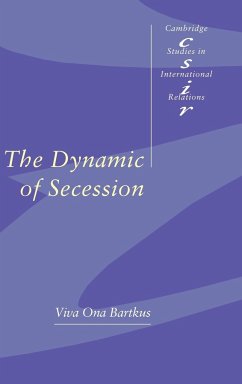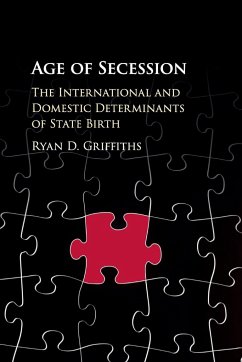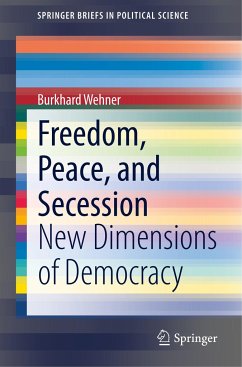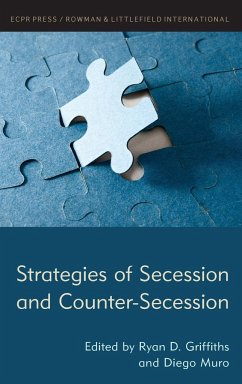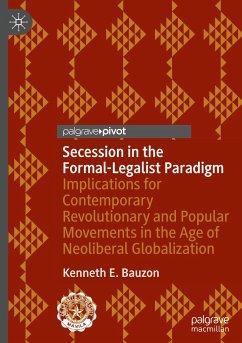
A Theory of Secession
Versandkostenfrei!
Versandfertig in 1-2 Wochen
109,99 €
inkl. MwSt.
Weitere Ausgaben:

PAYBACK Punkte
55 °P sammeln!
First published in 2005, A Theory of Secession: The Case for Political Self-Determination offers an unapologetic defense of the right to secede. Christopher Heath Wellman argues that any group has a moral right to secede as long as its political divorce will leave it and the remainder state in a position to perform the requisite political functions. He explains that there is nothing contradictory about valuing legitimate states, while permitting their division. Once political states are recognized as valuable because of the functions that they are uniquely suited to perform, it becomes apparen...
First published in 2005, A Theory of Secession: The Case for Political Self-Determination offers an unapologetic defense of the right to secede. Christopher Heath Wellman argues that any group has a moral right to secede as long as its political divorce will leave it and the remainder state in a position to perform the requisite political functions. He explains that there is nothing contradictory about valuing legitimate states, while permitting their division. Once political states are recognized as valuable because of the functions that they are uniquely suited to perform, it becomes apparent that the territorial boundaries of existing states might permissably be redrawn as long as neither the process, nor the result of this reconfiguration, interrupts the production of the crucial political benefits. Thus, if one values self-determination, then one has good reason to conclude that people have a right to determine their political boundaries.






